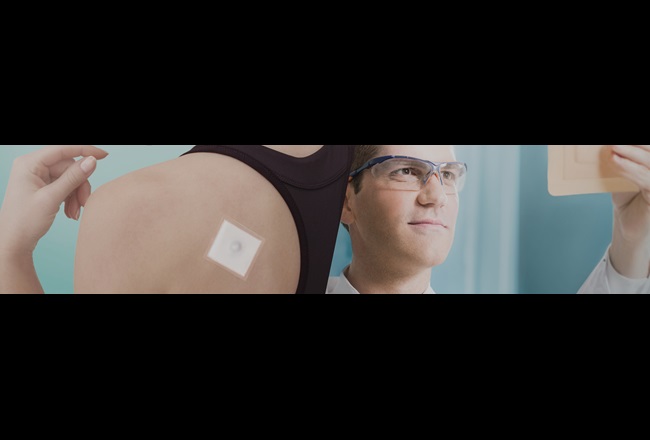
Healthcare
Challenge: Enabling people to live life to the full
More healthcare devices are now available than ever – from stents, sutures, and artificial vessel grafts to wearable medical devices that monitor complex medical conditions. But there are also growing demands on these devices. Medical conditions such as diabetes, obesity, and vascular diseases are increasingly common, and wounds are as prevalent as ever. This makes it even more important for healthcare devices to offer versatile comfort, flexible convenience, and improved sustainability, so that the people using them can continue living their lives to the full.
Status: Versatile comfort meets increased efficiency
Whether it’s skin patches, gloves, wearables, or other electromedical equipment, patients need their medical devices to be comfortable, safe, and effective. And of course, they must still comply with strict standards for medical products. Our polyurethane foams, adhesives, and coating solutions help to meet these needs – and enable solutions that are tailorable in form, shape, and size.
Take wound management, for instance, where there is a growing need for higher performance and improved haptics. Materials with strong friction management, breathability, pressure and shear management, and low trauma release help dressing manufacturers address these needs. In particular, adhesives based on our Baymedix® materials enable optimal moisture management, for breathable, absorbent dressings that stay in place. The adjustable peel strengths of these adhesives also make it easy to achieve low-trauma removal.
Process efficiency and sustainability are also key priorities for dressing manufacturers. With easy-to-combine raw materials, this is made easier. Baymedix®-based wound dressings can be produced in a roll-to-roll process. The adhesives and foams can even be applied directly onto film, eliminating lamination steps. Optimized drying times, reduced waste, and the absence of solvents in the manufacturing process further improve efficiency and sustainability.
Beyond wound dressing, healthcare providers also look for increased functionality, comfort, and miniaturization in smart patches, such as electrocardiography/electromyography (ECG/EMG) patches, which monitor vital patient data. Here again, Baymedix® adhesives and foams and Platilon® TPU films enable skin-friendly, easy-to-remove patches. These materials can also be used as part of a wearable patch sensor concept that we co-developed with accensors, a German sensor technology company. The patch sensor includes a reusable element for reduced waste.
Next: Toward chemistry that works for everyone
In the coming years, medical devices will need to offer even greater levels of comfort and personalization. High-performance coatings and adhesives will be key to meeting a wider range of patient needs, including in next-generation solutions such as invisible under-the-skin devices. Together with partners across the healthcare space, we’ll continue developing solutions for all these applications, designing with re-use in mind to reduce waste in the quest for ever more sophisticated monitoring devices.




